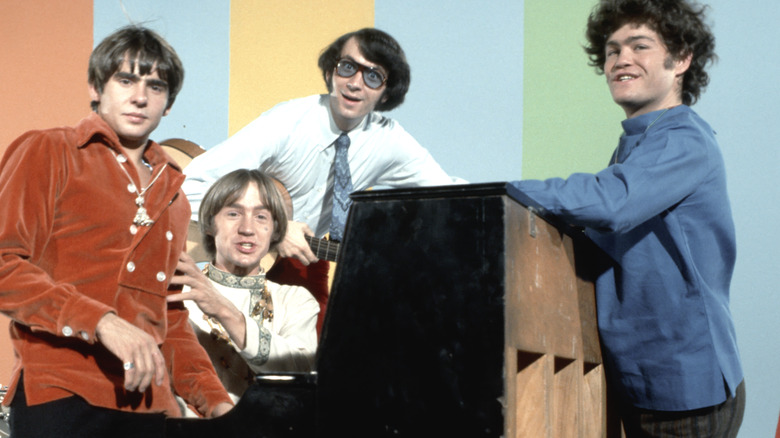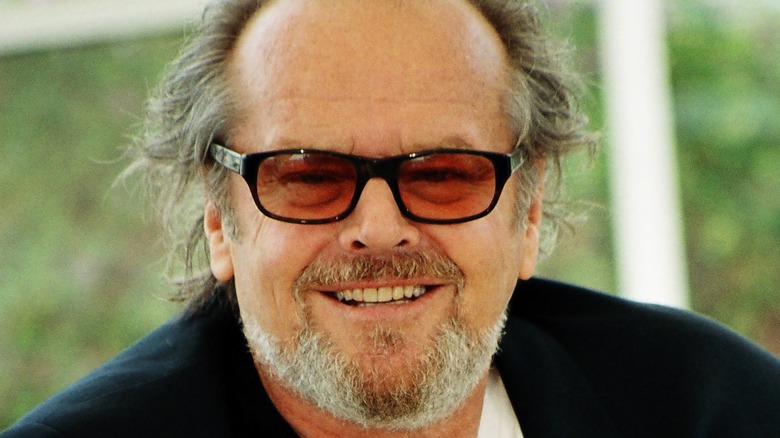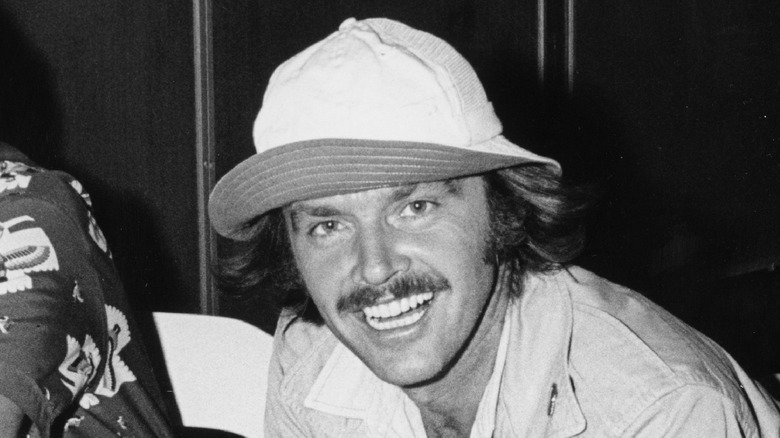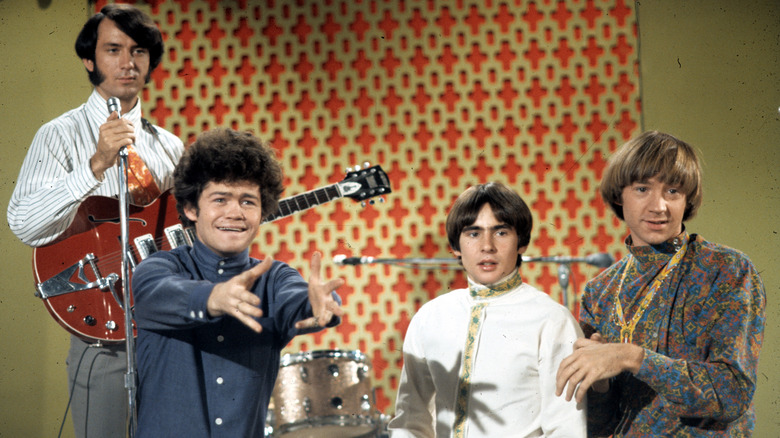The Oscar-Winning Actor Who Wrote A Movie For The Monkees
Sometimes nicknamed the Prefab Four, the Monkees first formed as a made-for-TV group. Their popular musical comedy series ran from 1966 to 1968, per IMDb. The program was the brainchild of director Bob Rafelson and his business partner Bert Schneider who drew inspiration from the Beatles, especially their film "A Hard Day's Night" (via the The Guardian). After auditioning a number of actors and performers (including Stephen Stills, later of Crosby, Stills, Nash, & Young), they hired Davy Jones, Michael Nesmith, Mickey Dolenz, and Peter Tork to star in "The Monkees."
Over time, this manufactured musical group gained more creative control and evolved into a real band who even served as an opening act for Jimi Hendrix, according to The Guardian. Rafelson began toying with the idea of making a movie with the Monkees while making the show. Toward the end of the series' run, he brought in a young, struggling actor and screenwriter named Jack Nicholson to work on the film project.
Jack Nicholson co-wrote the Monkees' movie
By the time he met up with the Monkees, Nicholson had a few writing credits to his name (via IMDb). He had co-written several B movie scripts, including 1963's "Thunder Island" and 1964's "Flight to Fury." In 1966, Nicholson had both written and starred in the western "Ride in the Whirlwind." He started to delve into the 1960s counterculture with 1967's "The Trip," which tells the story of an unhappy director who starts experimenting with drugs. The film, starring Peter Fonda, was made by legendary B-movie director Roger Corman.
Nicholson spent time on the set of "The Monkees" TV show, and he was an instant hit with the band. As Dolenz explained to Closer Weekly, "We all fell in love with him immediately. He was and still is incredibly charismatic, funny, brilliant. So we all got along. He hung out on the set of the show for months, and then we all got together and talked about this movie."
Nicholson created a rock and roll cult classic
Originally titled "Changes," the film was eventually called "Head," a bit enigmatic while also serving as a slang reference for drugs. Many of the ideas used in the film came from a marijuana-fueled weekend retreat during which Nicholson, Rafelson, and the band members got together to generate ideas for the movie, according to NPR. Their brainstorming sessions were recorded on tape, and those tapes became the basis for the script.
Not a typical Hollywood film, "Head" didn't follow the normal conventions of movie storytelling. It wove together a series of related scenes with other media elements, such as movie clips and commercials. The Monkees took on film clichés, television, and the music industry, as well as their own image. Throughout "Head," the band is being pursued and attacked. They keep getting trapped in a big black box, an image that recurs several times in the movie. The film also included some celebrity cameo appearances by the likes of Peter Fonda, Dennis Hopper, and Frank Zappa.
Head bombed at the box office
Not only did he co-write the script with Rafelson, Nicholson also helped out during the filming of "Head." Nesmith remembered the experience of working with Nicholson and Rafelson fondly in an interview with Wisconsin Public Radio. He described making the film as "the high point of my whole Monkees experience." Jones, on the other hand, expressed his frustration and disappointment with the project, telling The Guardian that "We were pawns in something we helped create but had no control over."
Released in November 1968, "Head" baffled moviegoers with its psychedelic, stream-of-consciousness style. Critics didn't know what to make of it, either, which led to a string of poor reviews. And the marketing for the film purposefully made little reference to its stars, which failed to attract their fans. The movie cost $750,000 to make and only earned a bit over $16,000 at the box office (via NPR). While it was initially a tremendous flop, "Head" has become a cult classic. After "Head," Nicholson only had one other screenplay credit to his name, the 1971 sports dramatic comedy "Drive, He Said," which he co-wrote with Jeremy Larner and which he also directed (via IMDb). As most everyone knows, Nicholson had better luck as an actor, and he even reunited with Rafelson for 1970's critically acclaimed film "Five Easy Pieces." Additionally, Nicholson now has three Oscars to his name — two for best actor, one for best supporting actor.



